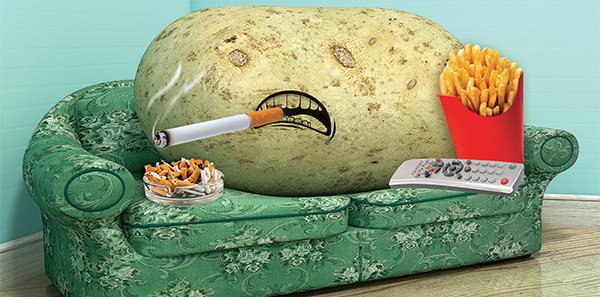
This is what we’ve trained and studied for. We get up for sick patients. I’ve heard nurses complain, “I’m bored. We need a good code.” It sounds awful, but it’s what we do. We like to treat sick people, not the “riffraff.” Yet, those sickest people who we save, those septic 72-year-olds or diabetic 56-year-olds having strokes, those are the ones who cost the most. Hands down, no doubt about it, the sickest people cost the most. If you’re worried about the cost of health care, then you’re worried about this problem. Our country seems to be generating disease, like obesity, cancer, and diabetes, at greater rates. Are we going to treat all of them when they show up? Or can we turn that trend somehow?
Explore This Issue
ACEP Now: Vol 35 – No 04 – April 2016Are we free to self-determine? Are we free to choose an unhealthy life if, at the end of it, we help to bankrupt our country? Is it other people’s business what you do on a daily basis, knowing that health is a set of habits you keep? In this country, people are free to choose as they wish, but it’s often the broader community that cleans up after them. We in emergency medicine are part of that community, often the business end of it. We may grouse about patients who abuse the ED, but all of us have the responsibility to make better choices. That could be how you treat your next patient or how you choose to manage the stress that comes from treating those patients.
Like many school districts around us, we will soon be asked to account for quality outcomes but not given credit for the effect that poverty has on those outcomes. Let us not assume that “these people” have some moral failing that they need to dwell upon. Let us not assume that “these people” deserve our scorn or our criticism. They need our help, not our judgment. I believe that we understand very little about the needs of the very patients who show up in our departments.
I look at the ED as a public space, which can be used by anyone. In that public space are all the issues that our country has to offer. We can choose to make things better or worse each day, with each patient. We may not save a life each day, but we can touch one. In many of our EDs, we see the effects of poverty. Like many school districts around us, we will soon be asked to account for quality outcomes but not given credit for the effect that poverty has on those outcomes. Let us not assume that “these people” have some moral failing that they need to dwell upon. Let us not assume that “these people” deserve our scorn or our criticism. They need our help, not our judgment. I believe that we understand very little about the needs of the very patients who show up in our departments. We may assume they want drugs or free stuff, but have you ever asked? Has anyone ever studied it or taken a survey? What we have in our EDs is nothing less than a real-time, ongoing needs assessment for the community around the ED. “These people” who show up to the ED inappropriately are the very ones who, without intervention, will end up as the sickest patients we all trained for. I think it’s in our long-term interest to take advantage of their presence and get a lot better at meeting their needs. In short, we need to better serve “these people” and seek to understand their problems.
Pages: 1 2 3 4 | Single Page




No Responses to “Opinion: Freedom to Make Poor Health Choices Is Not Free from Responsibility, Consequences”